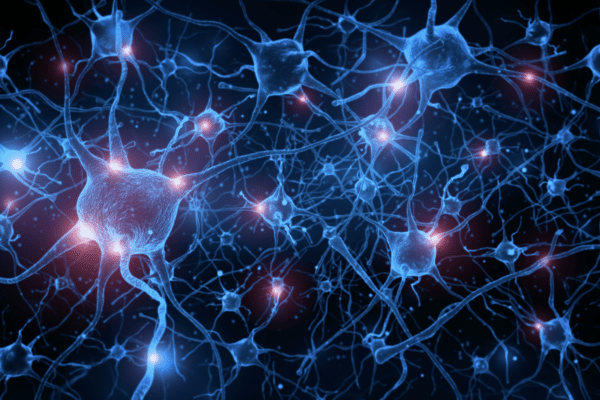How Often Do You Get a Vivitrol Shot? What to Know
Over the past few decades, there have been tremendous strides in treating substance abuse disorder. Newer treatments address the immediate aspects of your physical and emotional well-being and the lingering physical cravings that come with withdrawal.
Recovery is an ongoing process that can take months or years. However, new medications are available that target the brain’s complicated system of chemical responses and help develop healthier reactions over time. One of those is Vivitrol.
Vivitrol is an injectable medication that, when taken as part of a comprehensive treatment plan, can help those dealing with substance addiction. It allows people to eliminate physical cravings from their daily life.
Read on for how Vivitrol treatment can help you get rid of cravings and how often you need to get the shot for maximum efficacy.
How Does Vivitrol Work?
The primary function of Vivitrol is to minimize and hopefully eliminate cravings for alcohol or opioids.
Substance use disorders are primarily driven by chemical reactions that produce powerful cravings, leading to psychological and physical dependence. Addiction typically stems from behavioral addiction as much as substance addiction.
Alcohol, for instance, releases endorphins upon consumption, making the person drinking it feel good overall. Over time, the short-term rewards of drinking this endorphin-provoking substance alter your brain’s response to alcohol, inducing a craving to repeat the process again and again.
Naltrexone interrupts this pattern by blocking the endorphins from causing the usual reaction within the brain. Essentially, it blocks the pleasure induced by drinking. When the chemical-induced euphoria of drinking diminishes, the drive to drink tends to fade away.
Vivitrol differs from previous methods of medical treatment for substance use disorders in groundbreaking ways.
Prior medications focused on producing negative side effects — such as nausea or other discomforts — from drinking or opiate use rather than minimizing the positive ones.
Not only were these methods unpleasant — producing excruciating periods of illness on the road to recovery — they were also less effective overall.
When used alongside rehabilitative counseling and other long-term behavioral treatments, Vivitrol has proven to significantly reduce a patient’s use of unhealthy substances both in the immediate and the long-term.
How Long Does a Vivitrol Shot Last?
How long a shot of Vivitrol lasts largely depends on the patient’s body and previous alcohol or opioid consumption levels.
Vivitrol injections are slow-release, meaning they continue to emit the active chemical agents into the patient’s body for a prolonged period after administration.
Because of these slow-release properties, the length that Vivitrol continues to be effective is dependent on how quickly the patient’s body breaks it down. Some individuals can process Naltrexone out of their systems more rapidly than others, depending on factors such as weight, age, gender, metabolism, and medical history.
On average, Vivitrol remains effective for about a month. Doctors and medical professionals with substance use disorder expertise typically suggest administering the Vivitrol dose every four weeks as needed.
The elimination half-life of a Vivitrol injection is between 5 to 10 days, and the estimated number of half-lives necessary to eliminate it out of the body is also 5. Based on these calculations, it could stay in the body anywhere between 25 and 50 days.
How Is Vivitrol Administered?
Vivitrol is always administered as an intramuscular (IM) gluteal injection. In other words, it is a shot that goes into a muscular area of the buttocks.
Each dose is typically 380 mg, and professionals suggest alternating buttocks with each subsequent injection.
It is also important to note that Vivitrol should never be administered at home or by anyone other than an experienced healthcare provider.
Most doctors require a period of complete sobriety (usually 7-10 days) leading up to the injection date. If a patient receives their dosage too soon, the active chemical agents are likely to induce intense withdrawal symptoms that can be physically dangerous and emotionally damaging to the patient.
Because of the potential risks of improper administration, you must communicate honestly with your doctor ahead of time. Not being entirely truthful about any continued alcohol or opioid usage could put you at serious risk.
It is also common for doctors to prescribe Vivitrol alongside other types of treatment, such as intensive counseling. The success rate of Vivitrol rises exponentially when used as a supplemental measure to other long-term therapeutic processes.
Holistic treatment practices, such as those provided at the Master Center for Addiction Medicine, promote therapeutic healing techniques alongside medicinal ones.
What to Expect After a Vivitrol Shot?
After taking Vivitrol, you can expect a significant decrease in substance cravings due to the re-altering of your brain’s chemical responses. The effects are perceivable right away and reach their peak after only two hours.
Some side effects and initial symptoms common after a Vivitrol shot include nausea, headache, dizziness, joint pain, or anxiety. However, if you’ve recently consumed any alcohol or opioids, the dose of Vivitrol can cause more severe withdrawal symptoms, including fever, chills, vomiting, restlessness, or hot flashes.
You should be aware of increased sensitivity to substances due to a reduction in your physical tolerance over time. It can lead to instances of opioid overdose should relapse occur.
Vivitrol can’t cure substance abuse disorders on its own but instead should be part of a comprehensive treatment plan focused on reducing cravings, preventing relapses, and supporting long-term recovery.
Conclusion
When administered alongside behavioral and psychological treatment measures, Vivitrol can provide the last push you need to overcome your substance use disorder for good.
If you’re ready and eager for long-term sobriety but still struggling with persistent cravings which you feel are holding you back from your goals, then Vivitrol could be the solution. Reach out to the Master Center of Addiction Medicine today to discuss whether Vivitrol is an option for you. It might be the answer you need to free yourself from chemically-induced cravings and enjoy all the benefits of long-term abstinence from alcohol and opioids.


